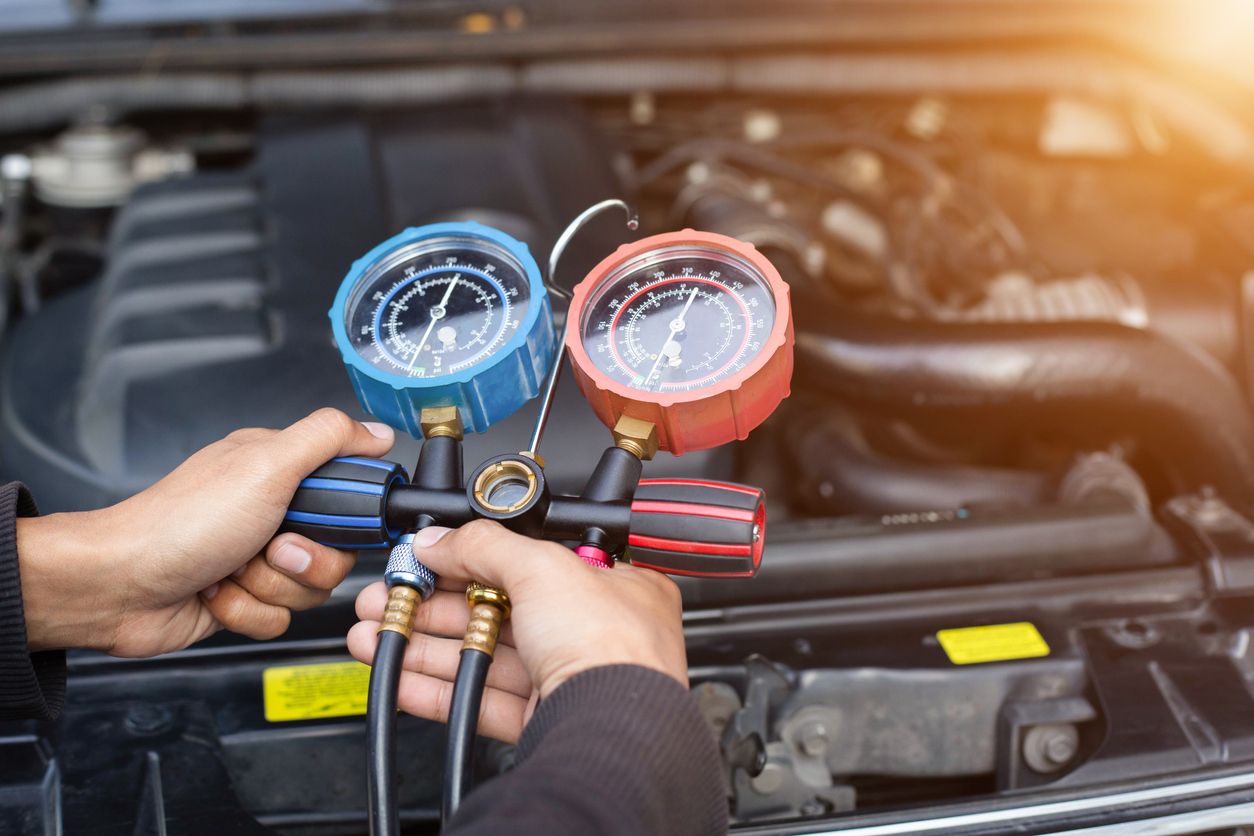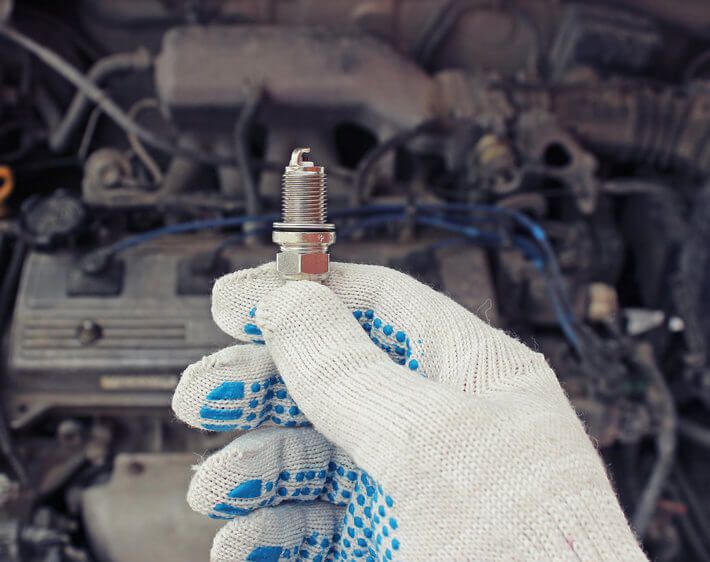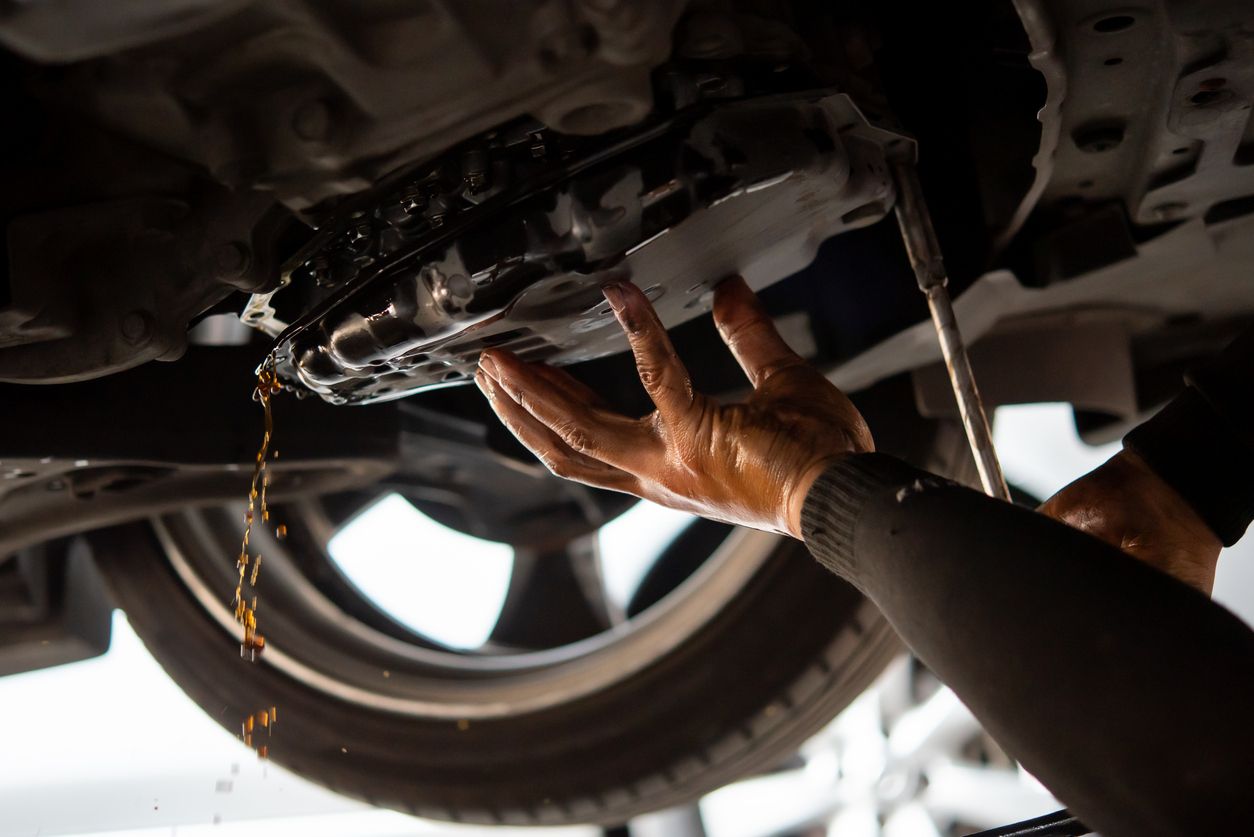As spring turns to summer and your daily commute starts to warm up, you may reach for your car's air conditioning switch a little more often. But have you ever stopped to wonder how your vehicle’s A/C works, and more importantly, if it could affect your gas mileage?
Read on to learn how vehicle air conditioning works, how to potentially improve fuel efficiency while running the air, and more.
DOES AIR CONDITIONING USE GAS OR ELECTRICITY IN A CAR?
An air conditioning compressor is usually driven via a belt on the engine but it can also be driven by a high voltage battery in an electric or hybrid vehicle. Many other circuits that control your air conditioning system pull from the alternator and regular 12-volt battery.
How Much Gas Does the A/C Use in a Car?
According to the U.S. Department of Energy, A/C use can reduce a conventional vehicle's fuel economy by more than 25%. Running the air conditioner in your vehicle can put greater demand on your vehicle’s engine, increasing gas consumption.
Does the Heater in Your Car Use Gas?
The heater in most vehicles gets its heat from the normal operation of the engine, and its circuits pull from the alternator and regular 12-volt battery. In some electric vehicles, the heater may get its heat from high voltage electrical heating elements.
WHAT AFFECTS GAS MILEAGE WHEN THE A/C IS ON?
The impact that running your A/C has on fuel consumption can be increased (or decreased) by several factors:
Weather
On hot days, your car’s A/C system has to work much harder to keep the cabin temperature low. That means when it’s hotter out, the air conditioning puts more demand on the engine, consuming more fuel.
Driving conditions
You may know that stop-and-go traffic is less fuel-efficient than highway driving. This goes for your air conditioning, too — when you’re in traffic or driving in a city, the A/C can have a higher impact on your already-stressed engine, resulting in poor fuel economy. At highway speeds, your vehicle is running in more optimized conditions, and the A/C won’t affect it as much.
Engine and A/C system condition
Like the rest of your vehicle, your air conditioning system benefits from regular inspections. A well-maintained A/C system runs more efficiently, reducing its impact on your engine. An air conditioning system that is in need of repair is less efficient and can cause the engine to work harder, using more fuel.
Your local Firestone Complete Auto Care can help ensure that your air conditioning system is in top condition.
TIPS FOR FUEL CONSERVATION WHILE USING THE A/C
Running the air conditioner on a hot day causes your engine to use more fuel. These tips can help improve fuel consumption while running the A/C, keeping you cool and your wallet happy.
Roll the windows up
Research has shown that driving with the windows down at low city speeds can be marginally more efficient than using the A/C. However, due to the drag created by having the windows down, it's more fuel-efficient to use the air conditioning at highway speeds.
Park in the shade and use sunshades
Parking in the shade can help keep your car cooler to start, meaning it won’t have to work as hard to cool off when you turn it on. Likewise, utilizing sunshades that go in your windshield can also help reduce your vehicle's starting temperature.
Use A/C sparingly
Once your car’s cabin reaches a comfortable temperature, turn it down to a more moderate level.
KEEP UP WITH MAINTENANCE AT FIRESTONE COMPLETE AUTO CARE
A properly functioning A/C system will be more efficient and potentially use less fuel than one that’s not working as it should. To ensure yours is in top shape, Firestone Complete Auto Care offers A/C performance checks and services such as A/C recharges to keep your system working optimally. Schedule your appointment today!



